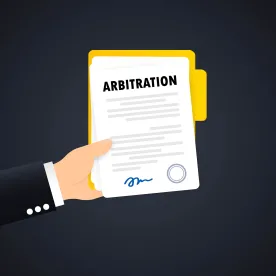The fourth amendments to the ICSID Arbitration Rules are the most extensive since their inception.[1] Unless an underlying treaty or agreement provides otherwise, the revised 2022 Arbitration Rules of the International Center for the Settlement of Investment Disputes (ICSID) apply to arbitrations filed on or after July 1, 2022.[2] In addition to amending its arbitration rules, ICSID is also promoting greater access to its services with the introduction of amendments to its Additional Facility Arbitration Rules, Conciliation Rules and the Additional Facility Conciliation Rules, thus promoting greater access to its services.
The 2022 ICSID Arbitration Rules include eight notable features:
-
Costs. The 2022 Rules require that all decisions on costs be reasoned and form part of the award.[3] They also expressly address security for costs, detailing the bases for granting the same and applicable procedures. While tribunals regularly ordered security for costs prior to the amendment, they did so as a provisional measure.[4]
-
Expedited arbitration. Addressing concerns that the cost of ICSID proceedings may be prohibitive for small and mid-sized enterprises,[5] the 2022 Rules introduced a chapter on expedited arbitration for smaller and less complex cases.[6] Expedited procedures are expected to cut the case time in half.[7] On average, an ICSID arbitration has historically lasted 3.6 years, or 1,325 days.[8]
-
Stricter time limits for and mandatory publication of awards and decisions. The 2022 Rules require tribunals to render awards within 240 days[9] and mandate the publication of every award — including supplementary decisions, rectifications, interpretations and revisions — within 60 days.[10]
-
Required disclosure of third-party funding. The new Rule 14 requires parties to disclose the name and address of any third-party funder upon filing the Request for Arbitration or after concluding a third-party agreement, and to keep such information current. The tribunal may also order disclosure of further information regarding the funder and the funding agreement.
-
Provisional measures. Under the new Rule 47, a party may request provisional measures to preserve its rights, including (i) to prevent action that is likely to cause immediate or imminent harm to that party or prejudice to the arbitral process; (ii) to maintain or restore the status quo; or (iii) to preserve relevant evidence.
-
E-filing. The 2022 Rules impose a default of electronic filing, with filing in other formats, such as in paper form, permissible only under special circumstances.
-
Non-party submissions. The 2022 Rules address non-party submissions,[11] which the old version had left to the tribunal’s discretion.[12] The requirements remain the same: (i) that a non-party have a significant interest in the proceeding; (ii) that the submission address a matter within the scope of the dispute; and (iii) that the submission assist in the determination of a factual or legal issue in the arbitration.
-
Bifurcation. The 2022 Rules also provide more clarity regarding bifurcation. Under Rule 42(4), the tribunal shall consider: (i) the material reduction of time and costs; (ii) the disposition of all or a substantial portion of the dispute; and (iii) the practicality of bifurcation, given the relationship between issues.
Time will tell whether ICSID achieved its goal to streamline, modernize and go green with its amendments.
FOOTNOTES
[1] ICSID Rules and Regulations Amendment, available at: https://icsid.worldbank.org/resources/rules-amendments.
[2] In Tayeb Benabderrahmane v. State of Qatar, ICSID Case No. ARB/22/23, an ICSID tribunal confirmed the application of the 2022 ICSID Arbitration Rules to the proceedings, even though the Notice of Dispute was filed before the rules entered into force. The relevant date was the filing of the Request for Arbitration, which was after the amended rules took effect.
[3] 2022 ICSID Arbitration Rules, Rule 52(4).
[4] 2006 ICSID Arbitration Rules, Rule 39.
[5] Working Group III of the United Nations Commission on International Trade Law (UNCITRAL) has been pursuing reform of investor–state dispute settlement (ISDS) since 2017. In its meetings, States raised concerns that some small and mid-size enterprises may be excluded from ISDS altogether due to the high cost of conducting the proceedings before ICSID. Report of Working Group III (Investor-State Dispute Settlement Reform) on the work of its resumed thirty-eighth session, January 28, 2020, available at: https://documents-dds-ny.un.org/doc/UNDOC/GEN/V20/007/33/PDF/V2000733.pdf?OpenElement.
[6] Major arbitral institutions have been offering expedited arbitration for some time now. See, e.g., ICC Arbitration Rules, Appendix VI; The SCC Expedited Arbitration Rules; Arbitration Rules of the Singapore International Arbitration Centre, 6th edition, Section V.
[7] ICSID press release: ICSID Administrative Council Approves Amendment of ICSID Rules, March 21, 2022, available at: https://icsid.worldbank.org/news-and-events/communiques/icsid-administrative-council-approves-amendment-icsid-rules.
[8] ICSID arbitration: how long does it take? Available at: Scanned Document (worldbank.org).
[9] If the award is rendered pursuant to Rule 41(3), i.e. for manifest lack of legal merit, the time limit is shortened to 60 days.
[10] Subject to certain exceptions, as contained in Rule 62 of the 2022 ICSID Arbitration Rules.
[11] 2022 ICSID Arbitration Rules, Chapter X, Articles 62-68.
[12] 2006 ICSID Arbitration Rules, Rule 37.




 />i
/>i

